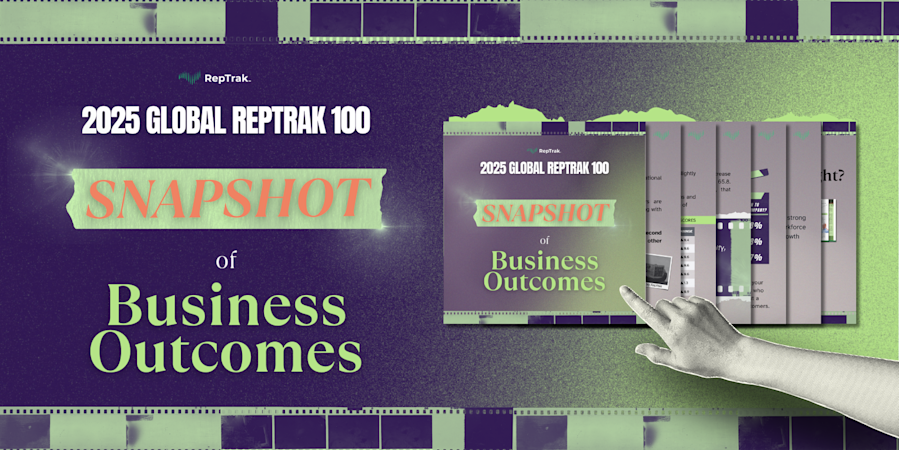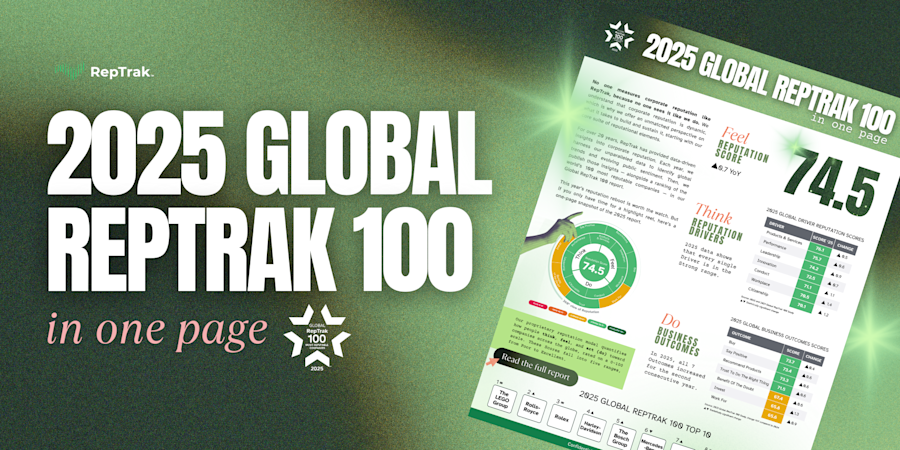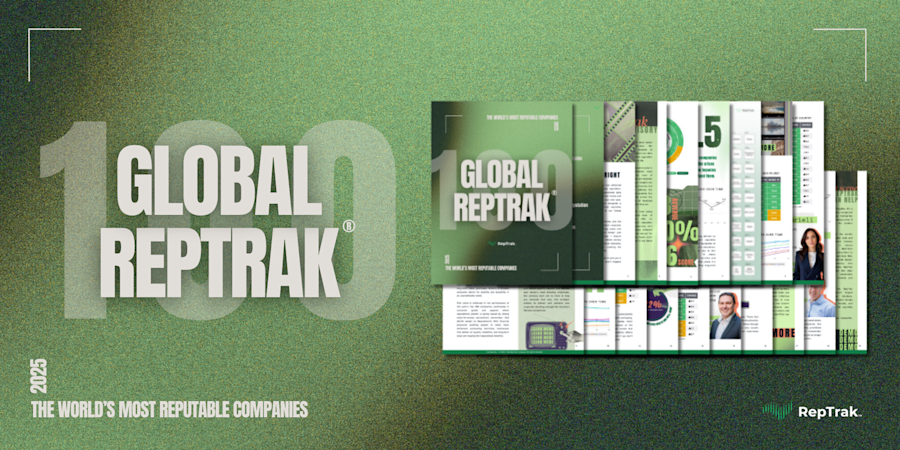Redefining Corporate Reputation with Purpose
Blog Post17 Oct, 2019
[This blog post is a summary of the "Redefining Corporate Reputation" episode on the Purpose 360 Podcast featuring host Carol Cone and Ri's CEO, Kylie Wright-Ford. Listen to the podcast.]
Remember that cool kid in school? The clever, prosocial one who was always in the know and was somehow liked and respected by everyone in every circle?
Well, in today’s corporate world, The RepTrak Company is that cool kid. Actually, The RepTrak Company's CEO Kylie Wright-Ford is that cool kid. When it comes to advancing in the business world, she is definitely in the know. She shared some of her insights with Carol Cone in a recent episode of Carol's Purpose 360 Podcast.
Wright-Ford discusses purpose, corporate reputation, and the role RepTrak plays in getting companies on track to exceed expectations. During the podcast, Wright-Ford addresses the lofty task of “Integrating Purpose into Corporations” by discussing purpose and corporate reputation.
She discloses the specifics of some of the directives and tools that Ri uses to advance clients in their respective industries as well as to help them build positive sustainable identities. As described by Wright-Ford, brand is the promise a company makes and reputation is a reflection of how it acts on that promise. She expands on the topic, explaining that a company’s reputation is the emotional bond that stakeholders have with it. While having a clear purpose is a crucial part of building an emotional connection, Wright-Ford emphasizes the fact that communication is also an integral component. She asserts that stakeholders should receive a consistent stream of information about company goals, actions taken to achieve them, and how the actions are in line with the company’s purpose.
The most recent Business Roundtable declaration redefined society’s corporate expectations, shifting focus from financial metrics to positive societal contributions. What a company stands for has become just as important as its bottom line, if not more, and the public is holding corporations to a new standard of corporate responsibility.
The rise of technology and social media has created a lot of visibility, placing the actions and reactions of companies under constant scrutiny. According to Wright-Ford, “employees and consumers today are demanding that companies make a positive impact on society at large.”
As you can imagine, this creates a lot more public accountability. It also heightens the risk of earning a negative reputation. Wright-Ford’s offers that “companies that don’t have a stellar reputation need to prioritize responsibility more than ever.”
There is a growing interest in corporate reputations as they are intangible assets that were historically immeasurable. Wright-Ford describes how the founders of RepTrak saw an opportunity for companies to harness the power of reputation and use it to their advantage. In order to effectively utilize and improve reputation, they knew that they must first be able to quantify it. In an effort to create the standardized framework for measuring reputation, they developed RepTrak, which enabled the team to pinpoint factors that impacted reputation.
In the interview, Wright-Ford outlines the ability of the RepTrak model to identify behaviors that people will take as a result of a reputation score, explaining that the most valuable information yielded is not the score itself but rather what leads to the score. She clarifies by saying, “We work with companies not just to measure them at a point in time but to measure how they change over time.”
At the core of RepTrak, exists the Pulse Score, which is a numerical value assigned to the amount of trust, esteem, and good feelings one has about a particular company. Pulse scores are tied to business outcomes. Ri clients use that score to identify problem areas. Wright-Ford describes the way that Ri helps interpret the data, pinning down the “where,” “when,” and “how” and tailoring action plans specific to those needs. As the interview progresses, Wright-Ford stresses the need for authenticity. She makes clear that, actions should align with a company’s purpose and that if inconsistency is found within the company’s culture or in a leader’s actions, credibility can quickly be lost. She makes clear that “it can’t be corporate responsibility for the sake of doing something. You must be authentic in your actions. Talk the talk and walk the walk.”
This year there was a massive CEO exodus, spanning across several industries. It marked not only a record-high for turnovers in general, but also the first time that the majority of turnovers were related to corporate governance and responsibility issues.
Wright-Ford cites this as further evidence that political, social, and technological changes are impacting the roles of CEOs worldwide, creating a very challenging time. She goes on to explain that we created CEO RepTrak in an effort to provide CEOs with information that could help them navigate toward success. The tool collects information by tracking CEOs over time.
Wright-Ford reveals that, unsurprisingly, the data shows that the reputation of a CEO can impact a company and visa versa. She goes on to note a strong correlation between CEOs and corporate reputation and affirms that the act of leveraging a CEO can bolster and have a positive impact on that CEO's company. She urges companies to form a strategy around their CEOs, pointing out the fact that the “silence is golden” rule has no place in the modern corporate world. Wright-Ford touches on the fact that purpose is the leading topic discussed by executives as they try to manage and improve their company reputations. The issue they face, however, is that there is currently no tool of measurement available.
The RepTrak Company is building one to fulfill the current measurement need by asking the following critical questions:
How does your purpose resonate amongst stakeholders?
How is your company’s messaging around purpose? Is it clear? Does it align with the values and goals of your audience?
What content and actions do companies focus on?
In the conclusion of the interview, Cone asks if the focus on purpose is temporary. Wright-Ford assures her that, to the contrary, it is very much here to stay. She explains, “Purpose is the calling of a company and every company should have one. It’s easier for some companies that have a rich heritage and legacy but every company can have one.
Melanie LoBue Senior Director of Global Marketing The RepTrak Company [email protected] @melanielobue





